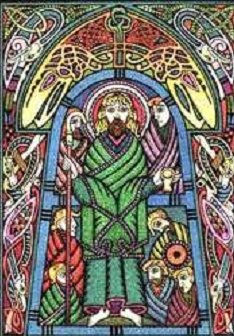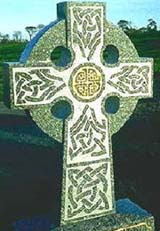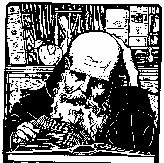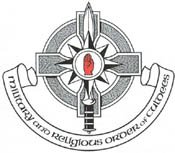
Apostles' Creed
1. I believe in God the Father, Almighty, Maker of heaven and earth:
2. And in Jesus Christ, his only begotten Son, our Lord:
3. Who was conceived by the Holy Ghost, born of the virgin Mary:
4. Suffered under Pontius Pilate; was crucified, dead and buried: He descended into hell:
5. The third day he rose again from the dead:
6. He ascended into heaven, and sits at the right hand of God the Father Almighty:
7. From thence he shall come to judge the quick and the dead:
8. I believe in the Holy Ghost:
9. I believe in the holy Christian church: the communion of saints:
10. The forgiveness of sins:
1l. The resurrection of the body:
12. And the life everlasting. Amen.
“Philip Schaff, in his Creeds of Christendom, writes of the Apostles' Creed, “As the Lord's Prayer is the Prayer of prayers, the Decalogue is the Law of laws, so the Apostles' Creed is the Creed of creeds. It contains all the fundamental articles of the Christian faith necessary to salvation, in the form of facts, in simple Scripture language, and in the most natural order—the order of revelation—from God and the creation down to the resurrection and life everlasting.” The simple doctrinal statements within this creed are clear and concise, and their meaning cannot be misconstrued[i].”
The first three articles portray the Holy Celtic Church’s confession of the historic Christian Faith concerning the person of God. He exists eternally; He exists in relationship to the other members of the Godhead; and He presents Himself as a trinity in unity: a characteristic with many allegories in the natural world, but with no true equal. The third article reminds us that Jesus Christ entered the world through the seemingly natural method of conception and birth; however, with the unique intervention of God the Father and the Holy Spirit in conjunction with a virginal Jewish maiden.
The fourth and fifth articles complete the message of the Four Gospels, while the sixth and seventh portray the witness of the Acts of the Apostles. The ‘descent into hell’ and the ‘raising of the dead’ merits comment: the clearest interpretation is that Jesus entered the state of the dead (i.e. Heb. Sheol & Gk. Hades) and His physical body was raised up (Gk. Anastasis) three days later; additions to this confession require unfortunate ‘isogesis’. The Book of Acts portrays the progress of the Kingdom of God as further proof that Jesus was, indeed, seated at the right-hand of the Father in Heaven (in the place of approval and authority). It is from there that all creation awaits the righteous judgment of God and the restoration of all things.
We believe in the Holy Spirit, who is at the same time God and the agent of His salvation in this world. He it is who illuminates God’s Word, regenerates the human heart and inspires great works of God. The holy Christian Church is the fellowship of all saints. While it is experienced at the local level, its boundaries, like her Lord, surpass all time and borders.
The great message of the Gospel is that our sins may be forgiven. It is against the one true God that we have given offence, and it is by His hand alone that sufficient Sacrifice has been offered in the person of Jesus Christ. It is now for us to be reconciled. As a saint has said: anyone to whom God wishes to speak, either in grace or in judgment, can never cease to exist. The Scriptures promise a resurrection to life; which is cause for hope and reverential fear as we consider our conduct in this life.
[i] Philip Schaff, The Creeds of Christendom, Volume 1: The History of Creeds, pp 14 15. (Grand Rapids, MI: Baker Books) 1983 as quoted in The History of Creeds and Confessions, Rick Brannan, Editor, 1998.




